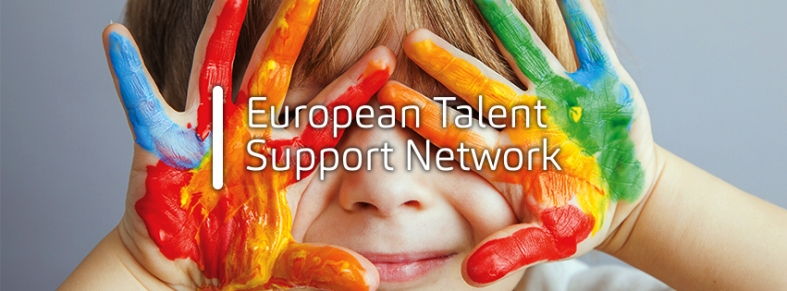
Oprettet af Camilla Bech Kjeldahl den 22. august 2018
The magic of cooperation
- Interview with Albert Ziegler and Csilla Fuszek
In August The Academy of Talented Youth East participated in the ECHA conference in Dublin. During our stay we met with Chairman of the ETSN network Albert Ziegler and its secretary Csilla Fuszek to talk about the strength and upcoming tasks for the network.
ATY: In your opinion, what are the strength of ETSN network?
Albert: First of all, I would like to stress that the network is very young. It’s still developing, and it hasn’t yet gained its full strength. Still, it already has some great strengths. One attribute is diversity.
Csilla: Diversity in a sense that the Network consists of different institutions, who all have different practices and ways of talent support. Because of the Network we get a chance to see each other's work and can learn from each other. Some Centers are more developed, while others are taking their first steps in the field of networking. For the upcoming institutions it’s extremely helpful to be part of an ETSN-ensemble and many times it helps them justify the talent activities to their own countries.
Albert: Another attribute is, that the Network is already – even though it’s in its infancy – very much elaborated. It takes place on several hierarchical levels and structures such as the Network Council, the Talent Centers, the Talent Points and specialized groups like the Youth Platform. And also, that the Network multiplies the effect of ECHA, our parent organization. ECHA consists of individuals, but with the ETSN network we now have institutions as members, who all want to have an impact and make a difference in society.
Csilla: As a Network we are visible. The institutions alone wouldn’t be visible at an international level.
ATY: Where do you see the ETSN organization in 3 years?
Albert: I would start by asking, what will happen to Europe? We don’t know. In some countries, like Hungary and the Netherlands, there are already great support to talent development and a strong structure. In Germany the government has just granted 150 million € for gifted education and we have over 300 talent schools. But what will happen in the other countries? And how much can the network help raise awareness and support in the other countries?
I hope that in 3 years the Network will be more closely linked across Europe. It means more Talent Centers and more Talent Points, and that they are better synchronized and better coordinated. That’s the basic goal for the coming 3 years.
We want to reach out to politicians and to get more Talent Centers both in and outside of Europe.
Csilla: One thing we know is that the Network creates a possible space – a possibility for new structures and solutions to emerge.
ATY: What are the most important tasks for ETSN the coming years?
Albert: We need to build up resources on different levels. We need financial resources and funding for coming projects. We need social resources in other networks, for instance political, scientific or economic networks. And also, resources in forms of access to infrastructures between the Centers and Talent Points.
Csilla: We need to spread the responsibility of talent support to influencers and opinion leaders. It’s not just a task in the area of education, but it’s a task and responsibility for the whole country.
ATY: What do you expect from the national ETSN talent centers?
Albert: The Talent Centers have 3 main objectives:
1) They need to coordinate the network with other Talent Centers and Talent Points.
2) When connected they can share. Share best practices, findings etc.
3) Grow together with other Talent Centers and create something new together.
ATY: What are the biggest advantages of the ETSN organization?
Albert: The biggest advantage of ETSN network is cooperation. Cooperation is always much stronger than individual action. If we join forces, we can increase our impact and raise awareness of talent development on both a national and international level.
Read more about the ETSN network here
 Find os på facebook
Find os på facebook Vær en del af vores netværk
Vær en del af vores netværk


